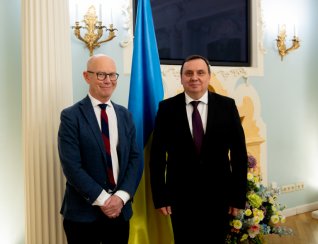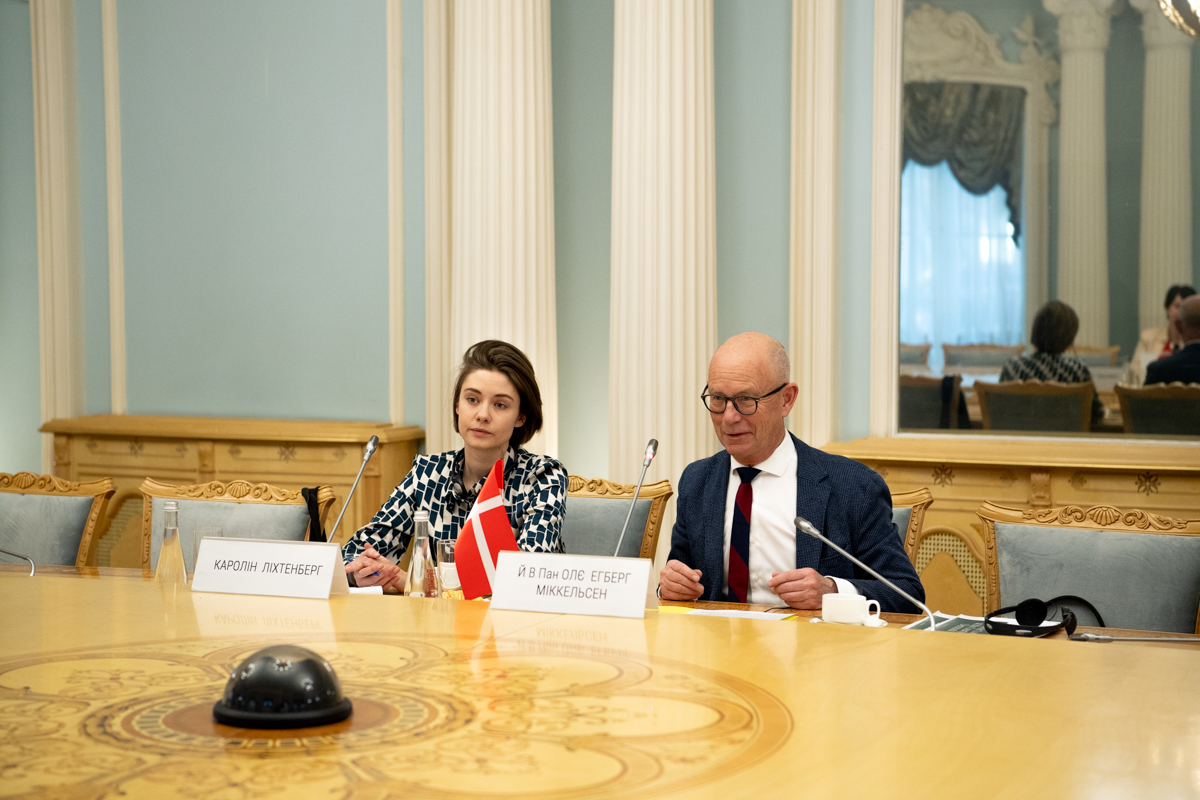Contact center of the Ukrainian Judiciary 044 207-35-46

Russia's war against Ukraine is a war against democracy, freedom and the rule of law. It is also a war against international law and security. Ukrainians are now paying an extremely high price for their European aspirations. But despite the challenges, common European values remain crucial for the Ukrainian people. And the judiciary does not distance itself from society, but actively participates in ensuring that these values are upheld.
This was emphasised by Stanislav Kravchenko, President of the Supreme Court, during a meeting with Ole Egberg Mikkelsen, Ambassador Extraordinary and Plenipotentiary of the Kingdom of Denmark to Ukraine.
First of all, the President of the Supreme Court thanked the people of Denmark for supporting Ukraine in the fight against Russia's armed aggression, for military and humanitarian aid, in particular for help in the reconstruction of Mykolaiv. "Ukraine has always valued friendly relations with Denmark. Now, in the midst of a full-scale war, we especially appreciate your support in the struggle for our existence and identity," said Stanislav Kravchenko.
According to the President of the Supreme Court, a significant number of courts are unable to deliver justice due to the temporary occupation of part of Ukraine. There are already 114 damaged court buildings (15 of them completely destroyed). The Chief Justice noted that on the eve of the meeting with the Ambassador, on 16 January this year, as a result of Russian missile attacks on the central part of Kharkiv, the building of one of the city's district courts was severely damaged.

At the same time, the Ukrainian judiciary has adapted to the challenges of wartime, fulfilling its functions and developing its case law in line with Ukraine's choice of European integration. This is important because even under martial law, the rule of law should prevail. In addition, there is a high demand for judicial services in Ukrainian society.
Stanislav Kravchenko also noted that Ukrainian courts are currently developing a well-established practice of considering criminal proceedings on crimes of aggression and war crimes, including in terms of defining such concepts as "ecocide", "genocide", "unleashing and waging an aggressive war", "violation of the laws and customs of war". "We strive to ensure that such definitions meet international standards. To this end, Ukrainian judges continue to study, among other things, the case law of the International Criminal Court, international tribunals and European courts," added the SC President.

The Ambassador Extraordinary and Plenipotentiary of the Kingdom of Denmark to Ukraine, Ole Egberg Mikkelsen, stressed that Denmark is a constant and close partner of Ukraine and will continue to do everything possible to support Ukraine. "The Danish society unanimously supports Ukraine and acknowledges the significance of providing assistance to your country. Your freedom is also our freedom," the Ambassador assured.
Ole Egberg Mikkelsen also noted Ukraine's progress towards European integration and stressed the importance of ensuring the independence of the judiciary and increasing public confidence in the courts, in particular through open communication with the public.
The participants of the meeting included Caroline Lichtenberg, Special Adviser (First Secretary) of the Embassy of the Kingdom of Denmark in Ukraine, Rasim Babanly, First Deputy Chief of Staff - Head of the Department for Analytical and Legal Work of the Supreme Court, and Lina Hubar, Head of the Division for International Cooperation of the Supreme Court.